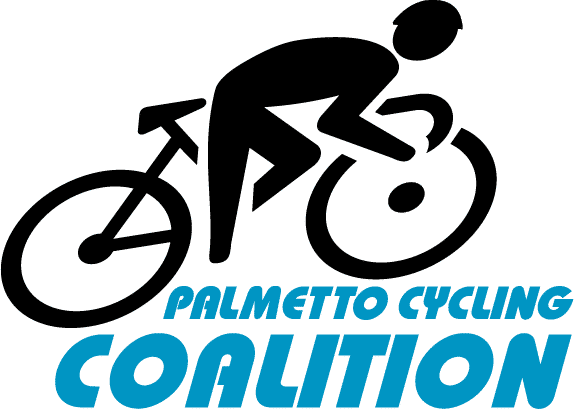Bikes & Buses: A Match Made in Heaven
| Session at the TASC conference |
For a second year now, the PCC has been invited to be a presenter at the Transportation Association of SC‘s annual conference. TASC promotes transit in South Carolina and acts as a statewide advocate for transit friendly legislation. Their membership includes all of the major transit providers in the state–our favorite being Best Friend Express in Aiken (who wouldn’t want to ‘take a ride with a friend?).
There were several bike/pedestrian sessions at the conference, including a session about the natural connection between bicycling and transit. PCC’s Director led this session, which began with a discussion about the benefits of connecting these modes of transportation and how to foster such improvements. The group then loaded bikes onto a Coast RTA bus, were transported to a nearby commercial/residential development, and then had a lovely bike ride on a beautiful South Carolina spring day.
| Janie and Beverly from Best Friend Express in Aiken. |
From the transit agency’s perspective, there are a lot of good reasons to accommodate bicycles. First and foremost, by offering services that appeal to bicyclists, agencies are thereby increasing ridership–an issue of utmost importance in this difficult economic climate where transit is increasingly taking big hits by local, state and federal agencies. Connecting transit and bicycling offers a higher level of mobility to users: since transit is ideal for moderate/long trips and bicycling is ideal for shorter trips, by combining the two a safer and more efficient way of travel results. Also, relative to other expenditures, bicycle accommodations are inexpensive for agencies. And last but not least, bicycle advocates are really good friends for agencies that are looking for allies in the community.
For the bicyclist, there are equally as many benefits to the bike + bus equation. By combining trips with bus travel, cyclists are better able to make longer trips that may otherwise be out of reach. Bus travel allows bicyclists to avoid physical barriers on roads–such as bridges without bike accommodations and roads with high traffic congestion and speed. Finally, connecting with transit allows recreational cyclists to reach riding areas beyond the urban and suburban perimeter that would otherwise cause them to travel in their car in order to arrive at a destination for a bike ride (this is a frequent dilemma for mountain bikers).
| Unloading the bikes. |
Of course, there are big picture advantages to bike + bus equation. Obviously, these modal connections allow the entire transportation system to work more efficiently. By removing a few cars from roads and parking lots, we are reducing traffic congestion, improving air quality, and improving overall quality of life. Bicycling and transit travel are active forms of transportation that support active, healthy lifestyles. And finally, in a society where one-third of of people do not drive a car, the bike + bus connection allows for improved social equity.
Most of the Regional Transit Authorities (RTA) in South Carolina’s major urban centers have buses equipped with bicycle racks, and this is a great first step. Other accommodations that are important to include are bike parking facilities (racks, shelters) at the bus stops and shelters. There are also many best practice strategies and policies that can be implemented in the bikes/buses picture including: coordination and implementation of regional bike plans; and creation of advisory committees to offer knowledge, expertise and diverse interests.
| Greenville, SC bus transfer center |
There are many bikes + bus connections throughout South Carolina communities. We’re particularly proud of the partnerships that our colleagues in the upstate are fostering. The City of Greenville is tapping into Transit Enhancement dollars to improve on-road bicycle accomodations to their downtown transfer center, and Upstate Forever is seeking Job Access and Reverse Commute funds to fund a bike share facility at the transfer center. This is a great example of innovative approaches to funding bicycle accommodations, and is a testament to the power of partnerships.
